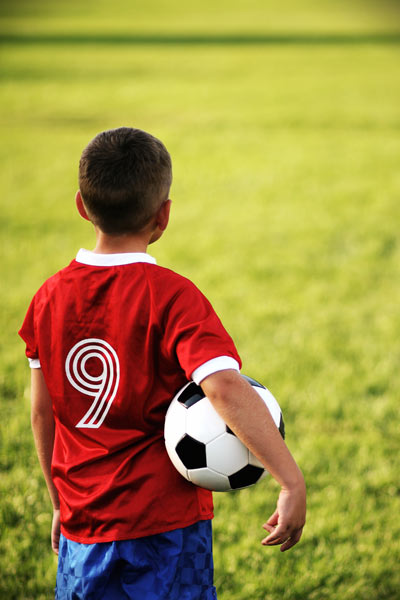May 25, 2016 • 5 min read
Three Ways Parents Can Encourage Mental Toughness
Posted in:
When my work first started to focus on helping young athletes reach their potential in sports and life, I was told by a business coach that I had to “brand” myself. He said my “brand” should be about the benefit those who work with me would receive. I thought long and hard about this before landing on “Mental Toughness Trainer” and only went with it after defining what “Mental Toughness” means as I teach it.
Mental Toughness is: Focused, Confident, Determined & Resilient, especially under pressure.
Before hearing my definition, some parents have reacted negatively to the term “Mental Toughness;” to some, it conveys an aggressive meaning. As you can see by my definition though, it really is all about life skills that we all need to grow up healthy. This is why we want our kids to play sports, right? Because sports is the vehicle that helps our kids learn these skills.
Having cleared all of that up, here are my top three ways parents can help their kids in youth sports (and outside sports, for that matter) develop Mental Toughness:
Prevent and Dispel Fears at Every Opportunity
Honestly, this is the bulk of my work, as none of those qualities can grow in the soil of fear-based thinking. The No. 1 thing parents can do is to speak and show unconditional approval and love of their athlete no matter the performance. Disappointing the parent is what many kids fear the most, and parents express disappointment in subtle ways they may not even be aware of.
 When a young athlete makes a mistake on the field or court and looks over at the mom or dad and sees the disappointed facial expression, fear is created. When Dad tells the young athlete on the way home from the game what he or she should have done differently…yep, more fear is instilled.
When a young athlete makes a mistake on the field or court and looks over at the mom or dad and sees the disappointed facial expression, fear is created. When Dad tells the young athlete on the way home from the game what he or she should have done differently…yep, more fear is instilled.
Solution? Just keep smiling, cheering and telling your son or daughter how proud you are that they got out there and played and how fun it is for you to watch. Period. Easy!
By the way, except for the rare individual, this goes for exceptionally talented kids, too. Coaching your own kid is like walking a landmine field.
Remind Your Child of His/Her Strengths as Often as Possible
We humans have a fantastic ability to look at ourselves and find what is wrong and where we are lacking. It’s actually a survival mechanism. However, we need to balance that critical side out by conditioning our minds to constant awareness of our strengths. This breeds confidence and allows for focus and determination.
Speaking of “focus,” does your kid play video games? How about commenting regularly about how well he/she focuses for such long periods of time? Remind your child of the concentration they employ for that activity right before game time as an example of what it means to focus.
Ask, Don’t Tell
As a parent, I understand the temptation to offer your kids advice when you can clearly see what they are missing or are doing wrong. When we offer without first asking them if they even want the advice though, we are depriving them of a golden opportunity to learn resilience and the ability to figure things out for themselves…and that’s the whole point of parenting!
Now, having said that, I have run into plenty of kids who will turn inward on their problems and let them fester and create more problems for themselves. You have my permission to continue to ask if they want help or advice, especially when you notice little signs of their discontentment. But you must do this very carefully! Remember, it’s your kid’s job to pull away from you over the years and establish independence so, as you probably know, there is a huge block to receiving advice from you.
I can’t tell you how many times I’ve heard from parents that although they teach the same lessons I do, their child only seems to really get it with me. That’s simply because I’m not the parent! My best tip for you if you want to get through to your child is to deliver your advice (about anything) with zero judgment. The kids know that they have this from me, and that’s why they listen to me when I work with them in person, and it sinks in.
Simply encouraging “positive thinking” and other vague concepts doesn’t stick with kids. You have to be specific and consistent with what I’ve taught you here, and more than what you say, kids pick up on what you do. Model what you want them to emulate, and give them the space to learn it. Sports will do the rest.
Craig Sigl’s work with youth athletes has been featured on NBC TV and ESPN. Get his free ebook: “The 10 Commandments For a Great Sports Parent” and also a free training and .mp3 guided visualization to help young athletes perform under pressure by visiting http://MentalToughnessTrainer.com.
